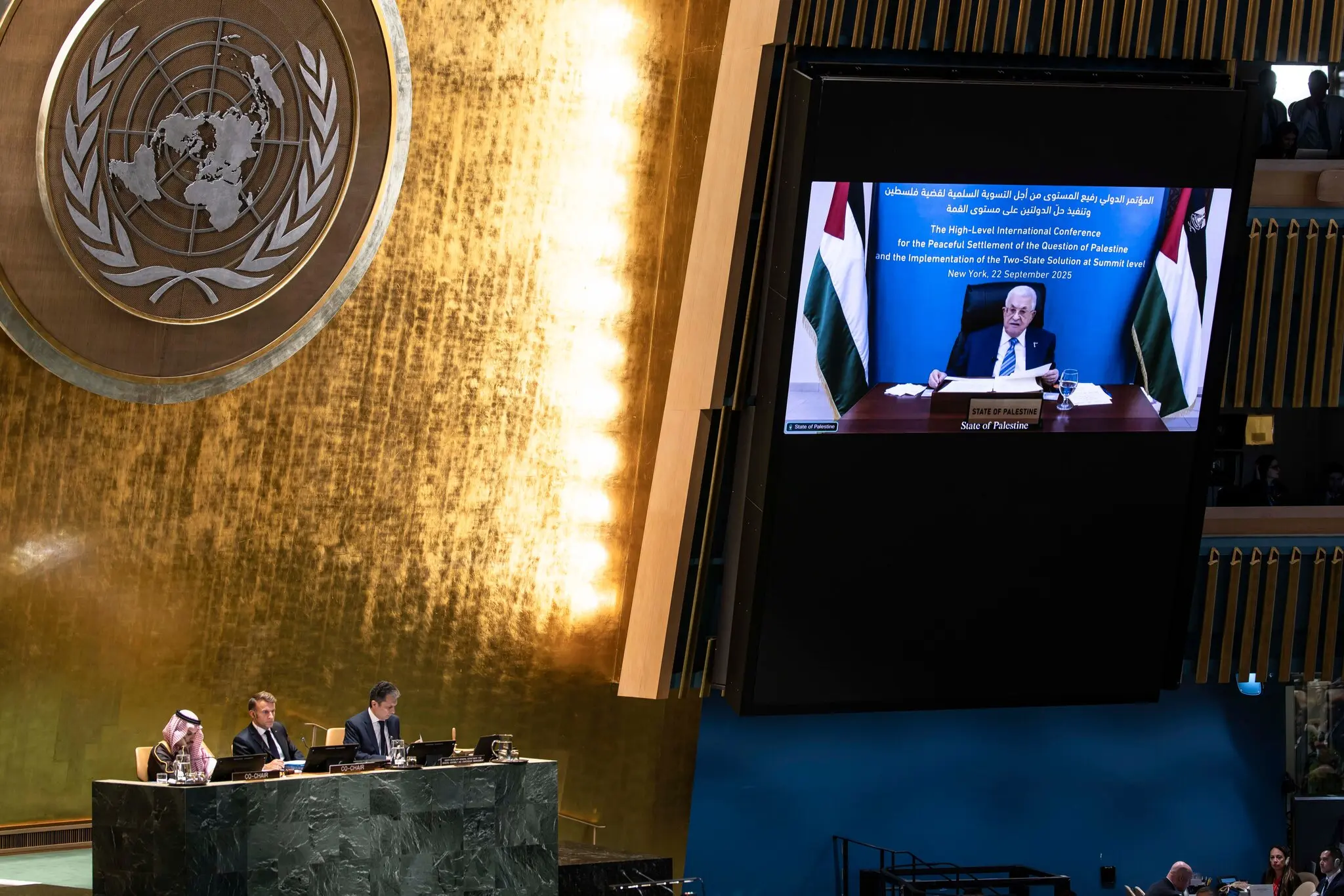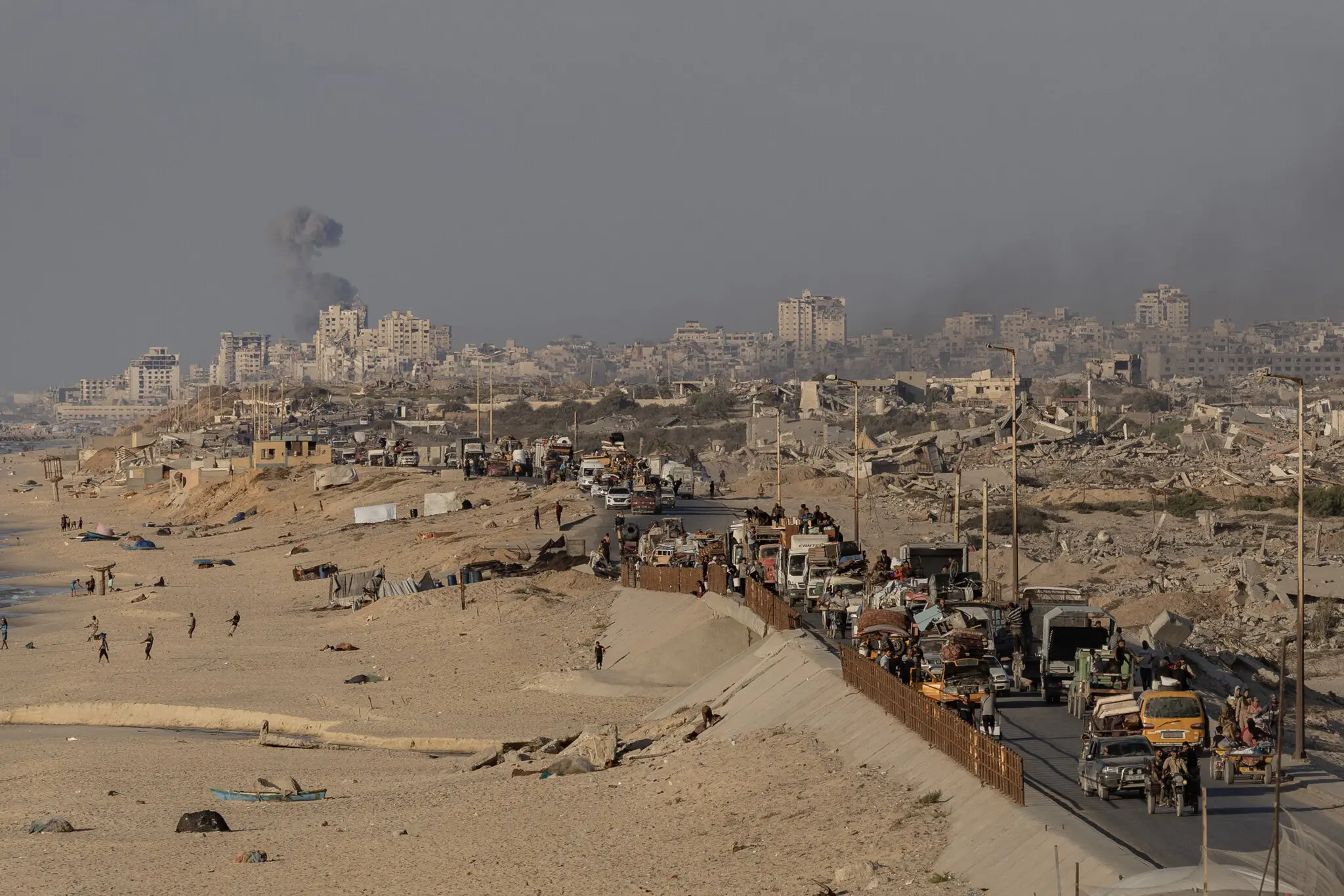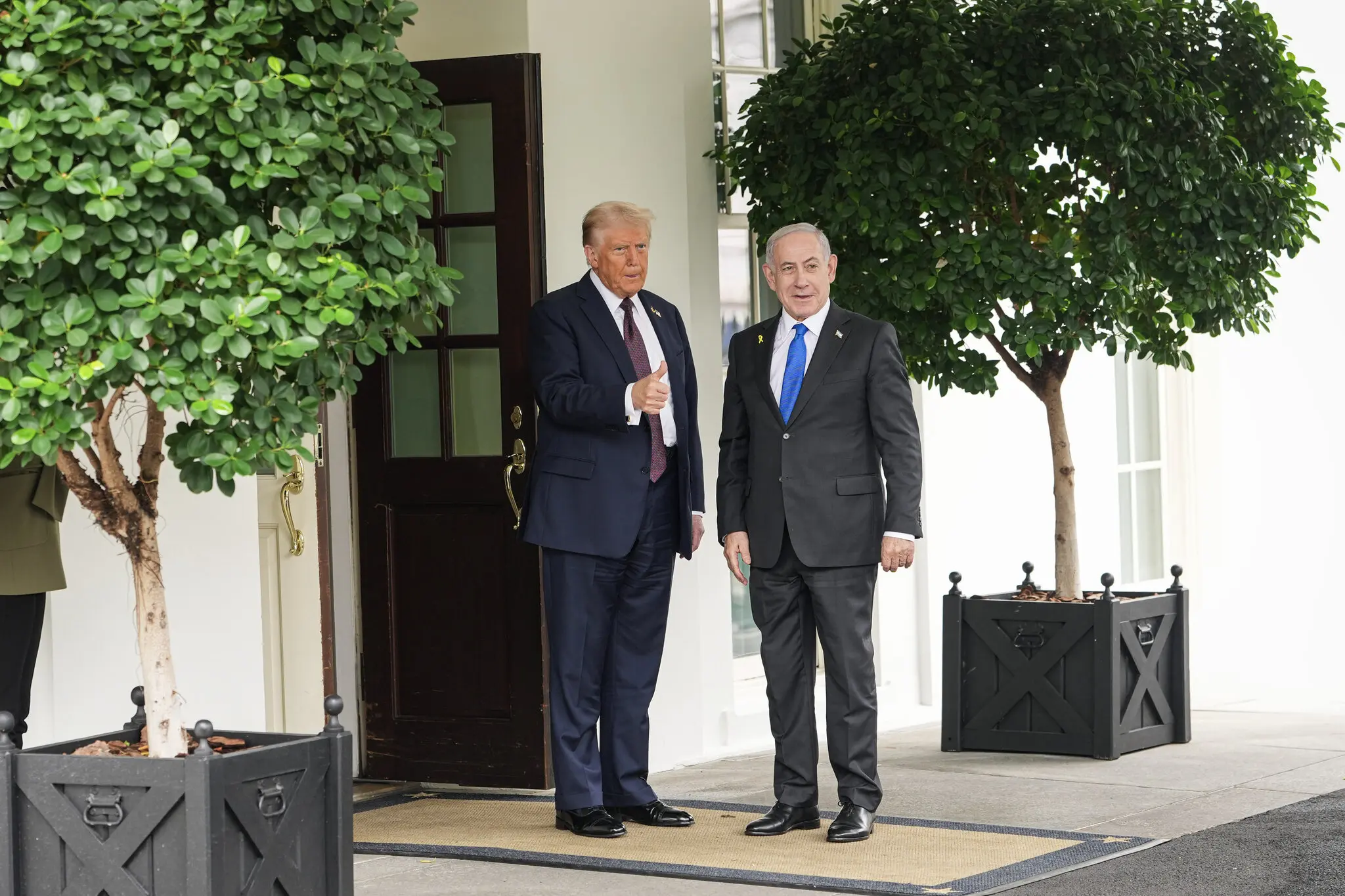Trump and Netanyahu Hold Talks on Gaza Strategy
29.09.2025
Netanyahu Meets Trump at White House to Discuss Gaza’s Future
Israeli Prime Minister Benjamin Netanyahu arrived in Washington on Monday for talks with President Donald Trump, focused on U.S.-backed proposals for governing Gaza after the war. The visit comes as Israel faces mounting diplomatic isolation, with countries like Britain and France officially recognizing a Palestinian state.
A Fourth Meeting Amid Ongoing War
This is the fourth meeting between Netanyahu and Trump in Washington since Trump’s return to office in January. While previous talks raised hopes for a cease-fire, the conflict has continued, with tens of thousands of Palestinians killed.
The current discussions are centered on specific frameworks for Gaza’s postwar governance. Among the ideas under consideration are a plan advanced by former U.K. Prime Minister Tony Blair, as well as proposals supported by France and several Arab governments.

Israel’s Growing Diplomatic Struggles
The talks follow a week of deepening Israeli isolation. Several European allies have recognized Palestinian statehood, while Netanyahu himself faces war crimes allegations at the International Criminal Court. Ordinary Israelis traveling abroad also report facing protests.
President Trump, despite his long-standing support for Israel, has warned that Washington will not allow annexation of West Bank territories. Still, it is unclear how much leverage he will apply if Netanyahu resists compromise.
The Trump Proposal
The American plan would require Hamas to release all hostages and return bodies of captives within 48 hours of an agreement. In exchange, Hamas members who renounce violence would be granted amnesty, while others would be allowed safe passage out of Gaza. Both sides would commit to new talks on coexistence.
Netanyahu has so far resisted compromise. His far-right allies want long-term control of Gaza and the rebuilding of settlements. Yet in a Fox News interview, he cautiously suggested the Trump proposal “might work,” though details remain unsettled.

Cease-Fire Talks and Ongoing Violence
Hamas has said it has not formally received the newest cease-fire terms. Negotiations have stalled since Israel’s controversial strike on Qatar in September, which drew global condemnation. Meanwhile, Israeli troops continue advancing through Gaza City, forcing hundreds of thousands to flee yet again.
The Palestinian Authority Debate
A major question is whether the Palestinian Authority (PA) should govern Gaza after the war. Created in 1994 under the Oslo Accords, the PA administers parts of the West Bank and views itself as the legitimate representative of a future Palestinian state.
President Mahmoud Abbas has indicated readiness to take responsibility for Gaza once hostilities end, while stressing that Hamas should have no role. Critics, however, accuse the PA of corruption and authoritarianism, and many Palestinians call for Abbas’s resignation.
Alternative Proposals
One idea, known as the Blair Plan, suggests a Gaza International Transitional Authority, supported by a multinational security force. This body would manage border crossings, prevent arms smuggling, and allow displaced residents the right to return. The Palestinian Authority would have only a limited role, but reforms would be required.
Another proposal, backed by France and Saudi Arabia and endorsed at the U.N. by over 140 nations, calls for Israel’s withdrawal from Gaza. A U.N.-led security force would step in, Hamas would relinquish its weapons, and Gaza would be run temporarily by a technocratic committee under the PA, with elections scheduled within a year.
Hostages and Public Pressure
Hostages remain a central issue. At least 20 are still believed alive in Gaza, while around 25 bodies are also being held. Families of hostages have appealed directly to Trump, urging him to pressure Netanyahu into accepting a deal before further military action kills those still in captivity.

Outlook and Obstacles
Despite cautious optimism from U.S. officials, including Vice President JD Vance, negotiations remain fragile. Netanyahu faces strong pressure from far-right coalition partners who insist on a permanent Israeli presence in Gaza and reject any PA role.
As the conflict escalates and international recognition of Palestinian statehood spreads, Netanyahu is caught between internal political demands and external diplomatic pressure. Whether Trump can turn this moment into a breakthrough for Gaza’s future remains uncertain.







